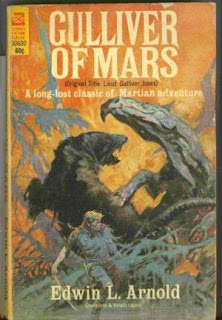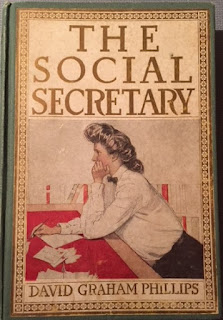a review by Rich Horton
I wanted to take another look at some of the work of the great Ursula K. Le Guin, who died January 22, and in particular I wanted to write about a couple of less celebrated novels. So I chose two books I read when they came out, and enjoyed, but hadn't thought of much since then. The more significant of these is The Beginning Place, from 1980. This is an adult novel, though its protagonists are young (20), and I suspect when I first encountered it, when I was the same age as they, I thought of it as YA. The other book is a shortish novella, about 20,000 words, and undeniably YA, and also non-fantastical. This is Very Far Away From Anywhere Else, about two high achieving but lonely high school seniors falling in love, or at least in friendship. (I was also about the same age as the protagonists when I first read it.)
 The covers shown are from the Bantam editions. I'm pretty sure I read Very Far Away From Anywhere Else first in the Atheneum edition, borrowed from the library, however. (The Beginning Place was also been published under the title Threshold in the UK.) (N.B. That is supposed to be Hugh on the cover of The Beginning Place but it doesn't look anything like him.)
The covers shown are from the Bantam editions. I'm pretty sure I read Very Far Away From Anywhere Else first in the Atheneum edition, borrowed from the library, however. (The Beginning Place was also been published under the title Threshold in the UK.) (N.B. That is supposed to be Hugh on the cover of The Beginning Place but it doesn't look anything like him.)The two books resemble each other in one quite significant way: both are stories about relatively young people, social misfits to some degree or other, who meet and fall in love. That is, I suppose, hardly an unusual plot -- indeed, stated that baldly, it approaches cliché. That said, the four main characters are each quite different to each other -- and The Beginning Place, not surprisingly, is a more complex novel, and is doing some interesting things with the classic portal fantasy structure. (Very Far Away From Anywhere Else, as noted, is not Fantasy at all.)
 |
| (Cover by Elizabeth Malczynski) |
So, then, the earlier and shorter book. Very Far Away From Anywhere Else is, unusually for Le Guin as far as I can recall, told in the first person, though the narrator, Owen Griffiths, makes sure to tell us that he's transcribing an oral account he recorded. Le Guin's care in acknowledging the narration is evident. This is something of a classical convention, I think. Owen is 17 at the time of the story's events, and a senior in High School, in a town on the Pacific Coast. (He notes that he is a year younger than his classmates, having got into school early. I found this a little odd because I was 17 until October of my Freshman year in college, and I never skipped a grade or anything, though Owen turns 17 in November, so he'd have been a month younger than me.)
Owen is, basically, a nerd, and the smartest kid in class, and he doesn't have any real friends. He loves his parents, but they clearly don't get him either. He wants to go to MIT (or maybe Cal Tech) and study the physiological basis of psychology, but his mother wants him to go to "State", which happens to be in town. He doesn't like sports, except he used to enjoy touch football. He's frustrated when his Dad buys him a car ... he doesn't want a car, he wants to be able to afford to go to MIT. (All this makes him sympathetic, perhaps particularly to someone like me, who was in a similar boat, though I've always liked sports -- but I think Le Guin stomps her feet a bit on what she thinks is virtue and what she thinks is wrongness.)
He happens to stumble into conversation on the bus one day with a classmate, and as it happens a neighbor, another senior, Natalie Field. Natalie is like Owen, except her obsession is not science but music. Specifically composition. Before long he and Natalie are close friends, willing to talk to each other about anything. Until Owen spoils it when he gets it into his head that he ought to want to have sex with her. And Natalie isn't ready. This all makes a lot of emotional sense. The resolution turns on a car crash, and the question of Owen attending MIT, and Owen's decision to see Natalie's songs performed even after they have drifted apart.
It's really a pretty simple novel -- not surprising at its length. I thought it a bit overdetermined at times -- the main characters a bit too too special -- aspects a bit unfairly moralizing. But it's still intensely enjoyable, and the final 10 or 20 pages are pretty powerful in their way. Not a great work -- but Le Guin at less than her best was still an effective writer.
The Beginning Place is an altogether more interesting novel. It is a pure portal fantasy, with a plot that at its most basic level is very traditional: a couple of characters, misfits to some extent in our world, find their ways (through a Portal) into another world, where it turns out they are the people needed to go on a Quest and Right a Wrong that threatens that world. But the novel is ultimately more interested in the two characters growing to realize that the true desolation they must resolve is that blighting their lives, in our world.
It alternates its viewpoint between the two main characters, each about 20. Hugh Rogers is working as a checker at a supermarket in an unnamed town. He lives with his mother, who is needy and controlling. He want to study library science and be a librarian, but he's constrained to follow his mother, who has moved multiple times since his father left them. He's stuck, and, worse, stuck in a lifeless and corrupted landscape. And one evening he just runs -- runs through his neighborhood and others and to a wooded area near a paint factory, and finds himself by a creek -- and drinks the water and feels, somehow, home.
Irene Pannis shares an apartment with a not terribly stable young couple. Her father has died, and her stepfather is both feckless and sexually threatening. She wants her own place, but seems destined to have to deal with life at her mother's. But, since she was 13 she has been able to find occasional refuge in another place -- beyond the same creek Hugh has found, in a land where time runs more quickly than in our world, where it is always twilight, and where she finds a town where she is welcome, where she makes friends, and feels at peace.
Irene discovers Hugh while he is sleeping by the creek, and resents what she considers an incursion. But the town -- Mountain Town, or Tembreabrezi, is threatened -- the roads cannot be traveled, and so they don't get the food they need, and can't sell what they make. It seems that Hugh is, in the classical portal fantasy sense, the hero who is needed, and Irene angrily brings him to Tembreabrezi. And they learn that Hugh can always get in to this world, and Irene can always get out. Hugh is enchanted by the Lord of the place, and his lovely blond daughter Allia, while Irene feels closer to the Mayor, or Master, a dark man.
As the home life of both Irene and Hugh gets worse -- Irene is forced to return to her mother and her grabby stepfather, and Hugh's mother is still colder to him -- they decide to spend the time in Tembreabrezi needed to satisfy whatever quest is called for. There is some resistance -- the Master's grandfather, at some cost (the whole nature not revealed) -- had saved the town long before. However, in the end it is Irene and Hugh alone who travel up the mountain, and we get hints of what prior sacrifice was required -- but the two force a different resolution. (There are reminders of the Abraham/Isaac sacrifice story, and, too, Hugh remarks once, that with his father dead and his mother rejecting him, that he is a man without parents -- a significant remark, I thought.) The ultimate resolution of the main quest is, in an oddly appropriate way, a bit anticlimactic (though a true climax follows). And while Tembreabrezi is presumably restored, that's not what seems to matter. What matters is Hugh and Irene coming to realize that their true home is in our world -- and that they must make their own way there (together, as it happens).







